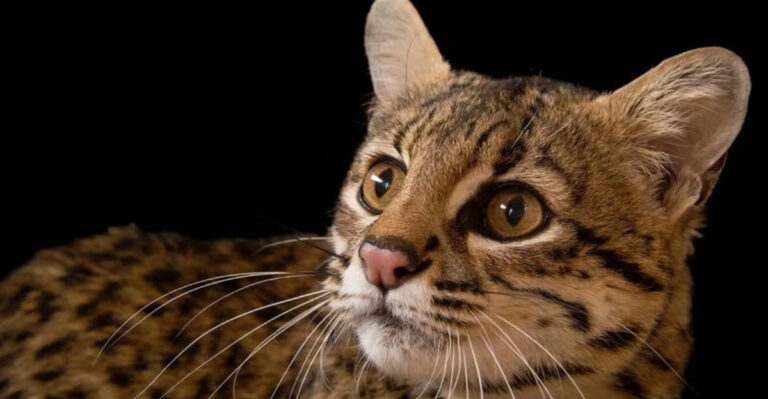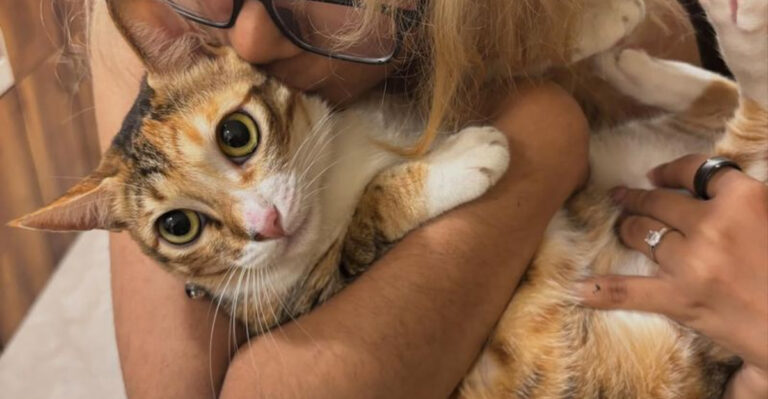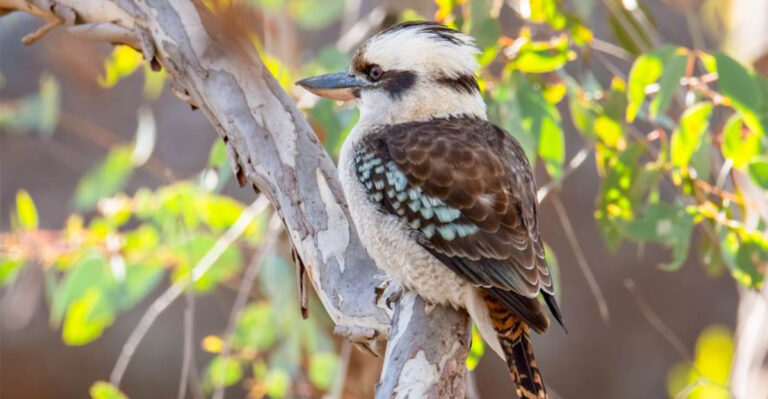15 Possible Reasons Why Your Cat Won’t Stop Meowing
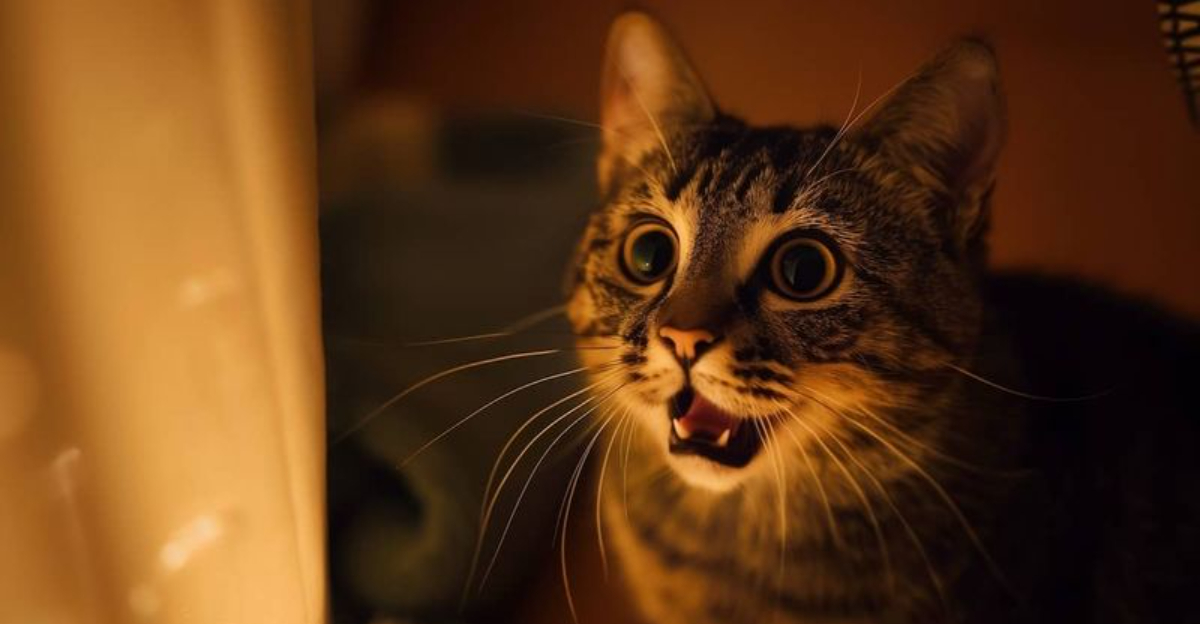
Ever wondered why your furry friend won’t stop chattering away? Cats communicate through meows, but excessive vocalization often signals something specific.
When your typically quiet kitty suddenly becomes a chatterbox, it’s their way of trying to tell you something important. Understanding these common reasons can help restore peace in your home and ensure your cat’s needs are being met.
1. Hungry Tummy Troubles
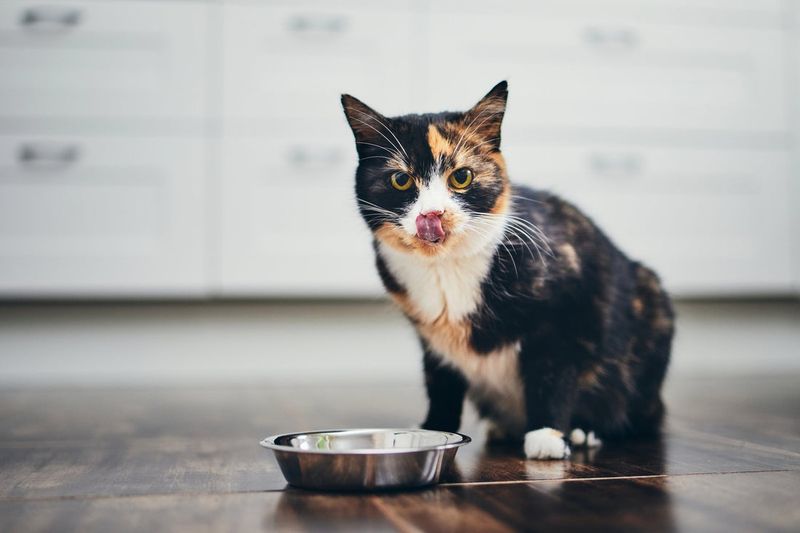
Food bowl blues hit hard in the feline world. Your cat might be telling you their dinner is late or the portion wasn’t quite enough to satisfy their appetite.
Some cats are naturally more vocal about mealtime, especially if you’ve accidentally reinforced this behavior by feeding them when they meow.
2. Thirsty Whiskers
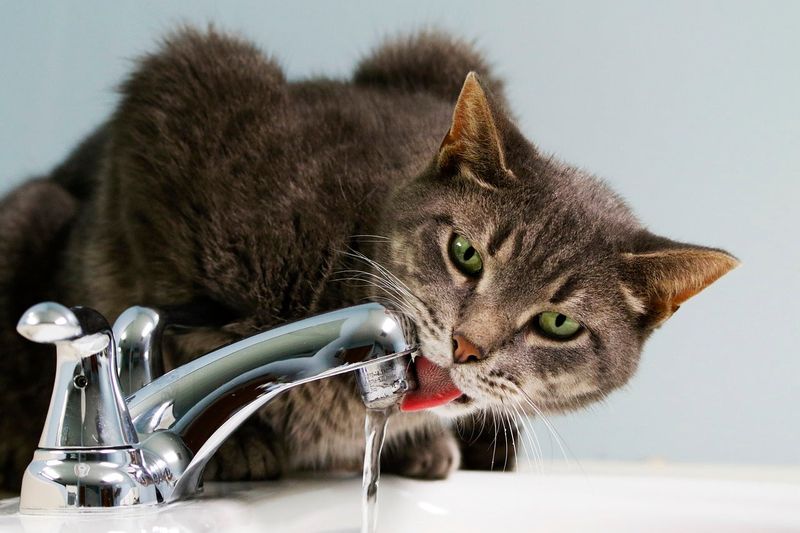
Water matters more than many cat parents realize. Fresh, clean water is essential, and some fussy felines prefer running water to still bowls.
Your cat might meow persistently near their water dish or follow you to the bathroom sink, trying to tell you they’re parched and need hydration help.
3. Litter Box Complaints
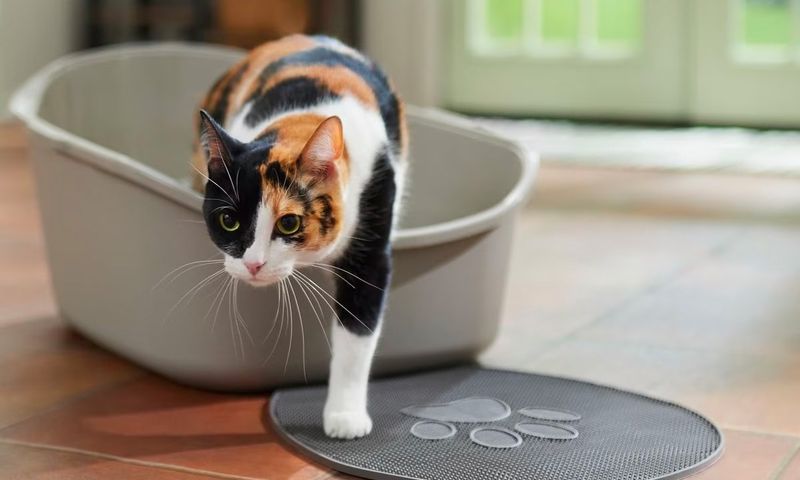
Nobody likes a dirty bathroom – cats included! Persistent meowing might be your kitty’s protest against unclean litter conditions.
They might also vocalize if the box location suddenly changed, the litter type feels strange under their paws, or if they can’t access their bathroom easily.
4. Seeking Your Attention
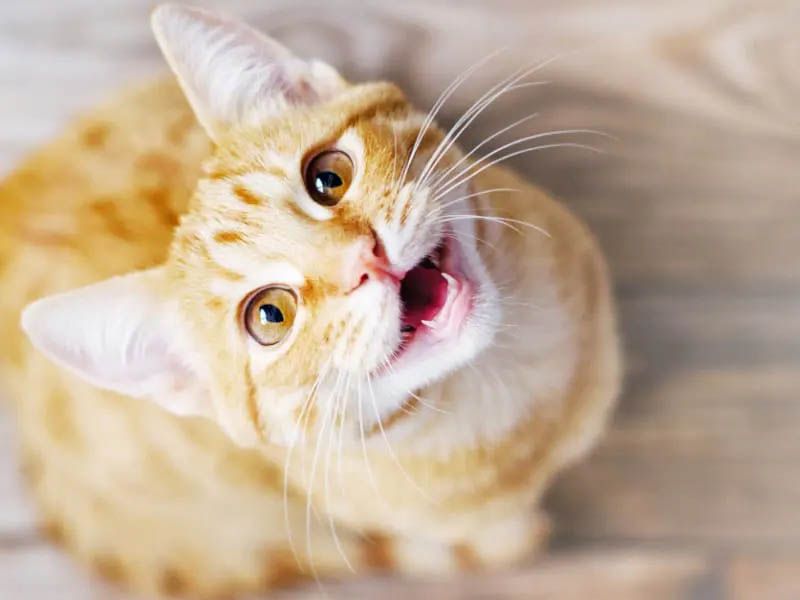
Sometimes the answer is simple – they just want you! Those plaintive meows might be your cat’s way of saying “play with me” or “pet me right now.”
Especially common in homes where cats spend long hours alone, this attention-seeking behavior peaks when you’re distracted by work, phone, or other activities.
5. Feeling Under The Weather
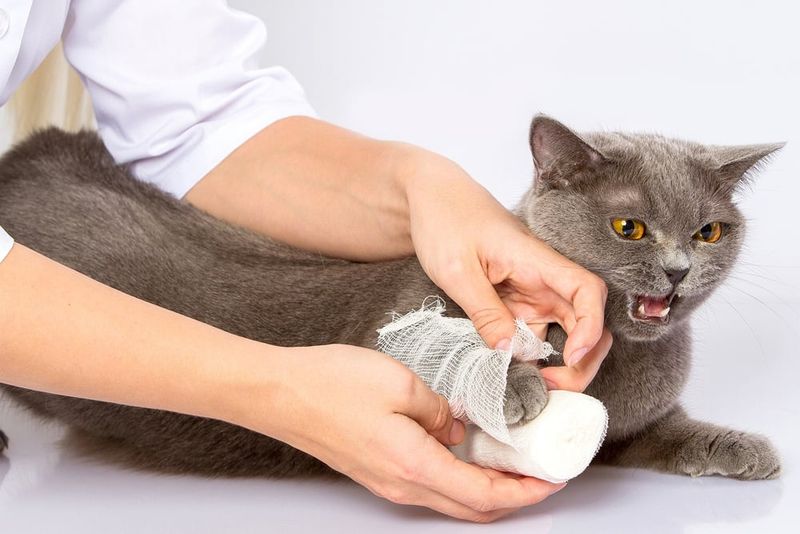
Strange meowing patterns can signal health troubles. Cats instinctively hide illness, but pain or discomfort might trigger unusual vocalization.
Watch for other symptoms like changed eating habits, different litter box behavior, or lethargy. Sudden excessive meowing, especially in older cats, warrants a veterinary check to rule out medical issues.
6. Senior Moments
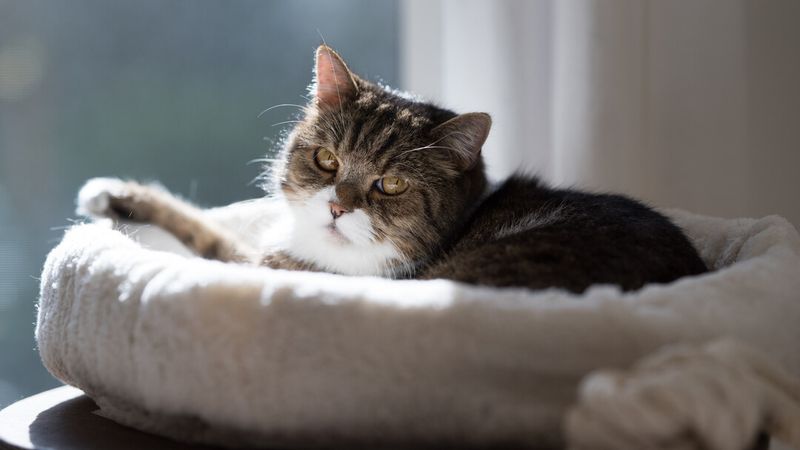
Just like humans, elderly cats experience cognitive changes. Increased vocalization is common in senior kitties experiencing confusion or disorientation.
Night-time meowing spikes in older cats suffering from feline cognitive dysfunction (cat dementia). These seniors might seem lost in familiar surroundings or call out more frequently for reassurance.
7. Stress And Anxiety
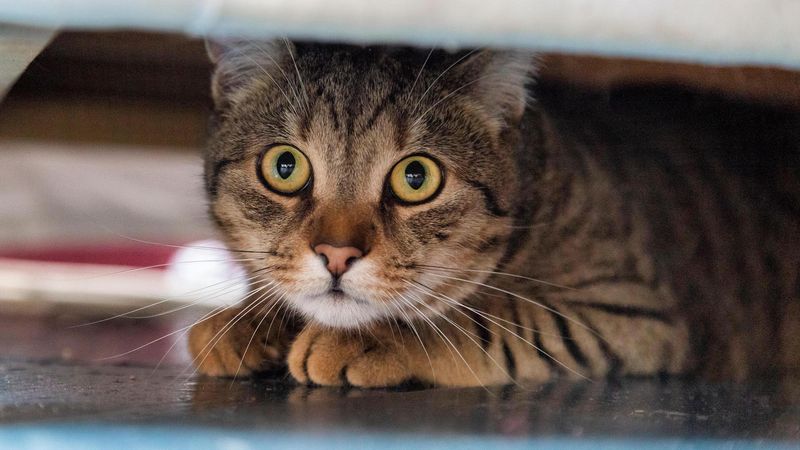
Change throws cats off balance completely. New furniture, houseguests, construction noise, or schedule disruptions can trigger anxiety-based meowing.
Your sensitive feline might vocalize more when feeling insecure or when their territory feels threatened. Creating predictable routines and safe spaces helps reduce this stress-induced chattering.
8. Hormonal Howling
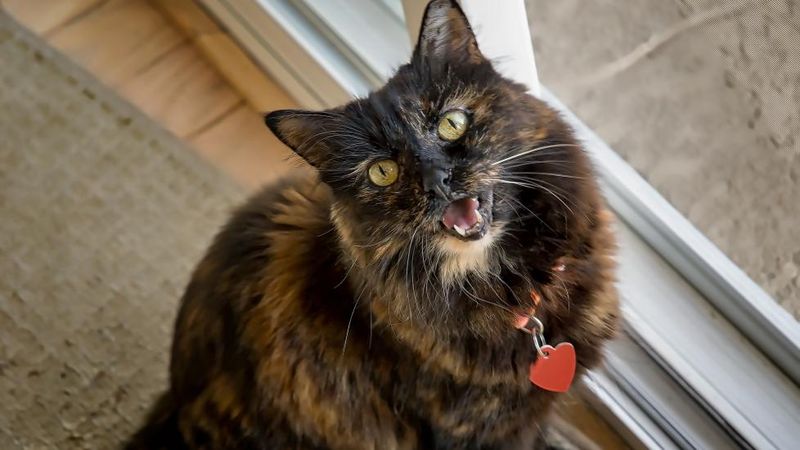
Unaltered cats experience powerful hormonal drives. Female cats in heat produce distinctive yowling sounds that can be mistaken for distress.
Male cats also vocalize when sensing a female in heat nearby. This natural reproductive calling can be eliminated through spaying or neutering, which brings numerous health benefits too.
9. Door Frustration
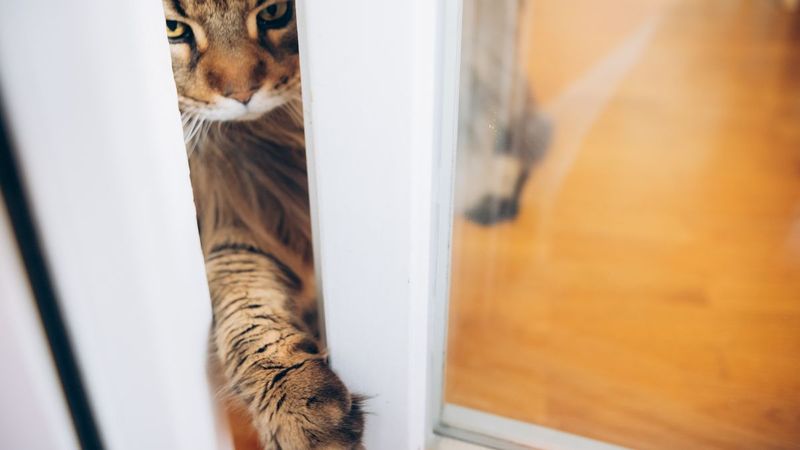
Freedom calls loudly to the feline spirit! Cats often meow persistently at doors, wanting access to forbidden spaces or the great outdoors.
This territorial behavior peaks at dawn or dusk when outdoor cats are most active. Even indoor-only cats instinctively respond to sounds of other animals outside, triggering meowing at barriers.
10. Separation Anxiety
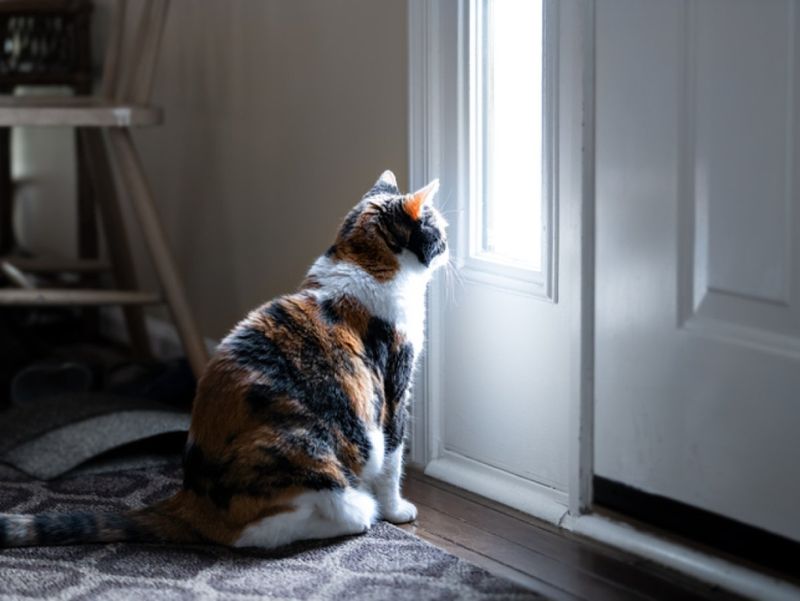
Despite their independent reputation, many cats form strong bonds with their humans. Excessive meowing before, during, or after your absence might indicate separation distress.
These cats often display other clingy behaviors like following you between rooms or becoming agitated when you prepare to leave. Gradual desensitization helps ease their worry.
11. Nighttime Activity
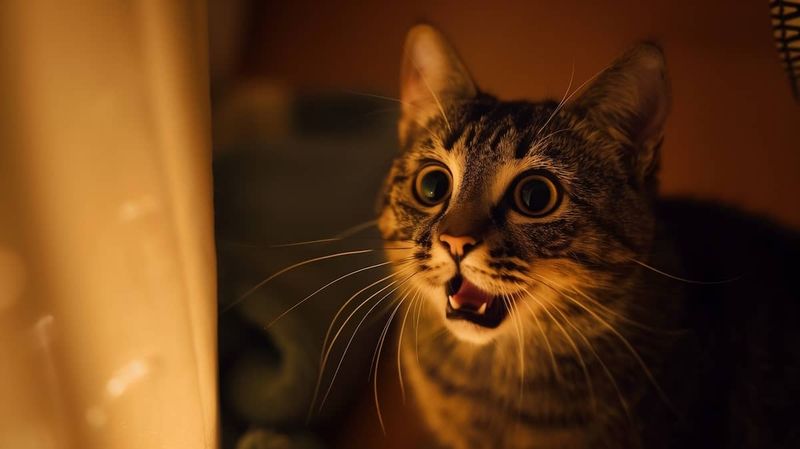
Moonlight awakens ancestral hunting instincts in your little predator. Cats are naturally crepuscular (most active at dawn and dusk) rather than nocturnal.
Those 3 AM vocal concerts often happen because your cat is simply following their natural rhythm. A robust play session before bedtime helps burn energy that might otherwise become midnight meowing marathons.
12. Reinforced Behavior
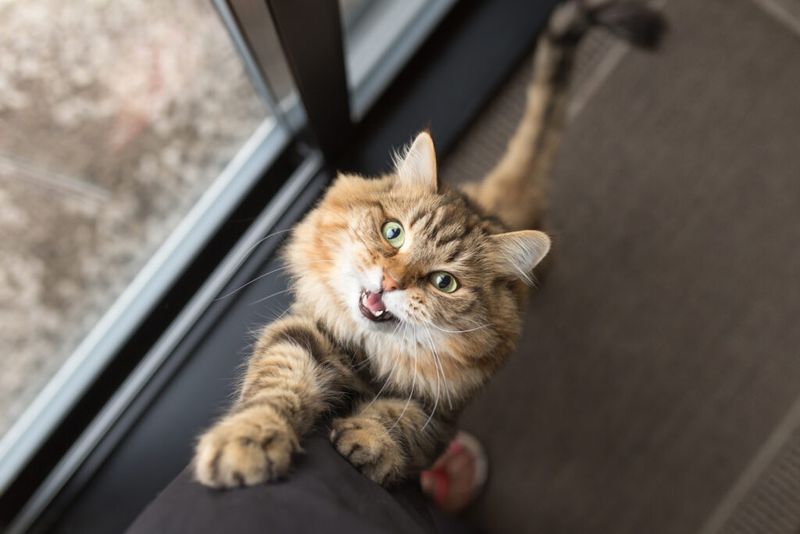
Accidental training happens more often than you might think. If meowing consistently gets your cat what they want – attention, treats, playtime – they’ll repeat this successful strategy.
Cats quickly learn which behaviors yield rewards. Even negative attention like scolding can reinforce meowing if your cat primarily wants interaction of any kind.
13. Breed Tendencies
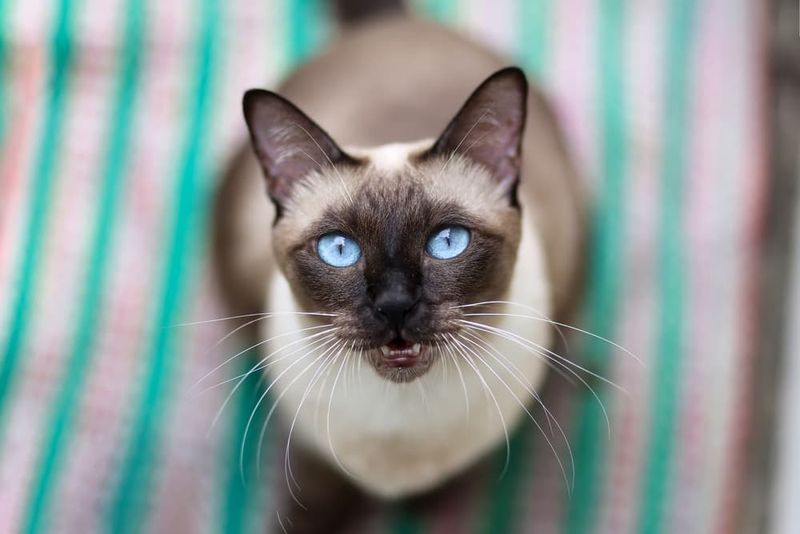
Chattiness runs in certain cat families! Some breeds like Siamese, Oriental Shorthairs, and Bengals are naturally more vocal than others.
These talkative types enjoy conversational exchanges with their humans and may develop extensive “vocabularies.” If you’ve got one of these breeds, their frequent meowing might simply be their genetic predisposition to communicate.
14. Boredom Blues
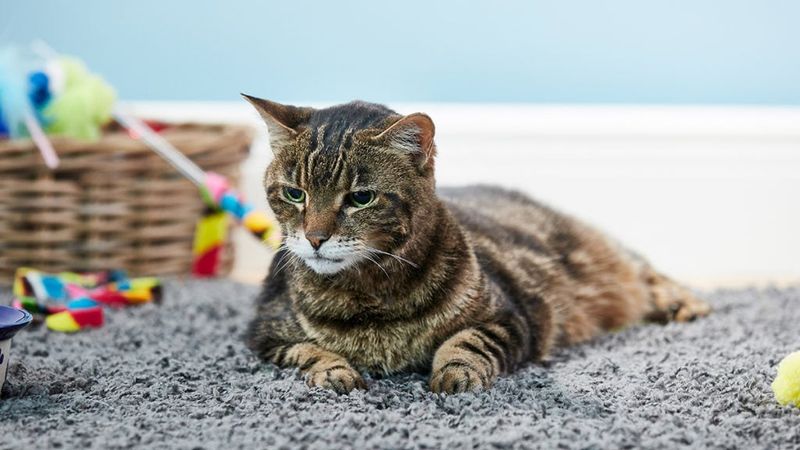
Mental stimulation matters tremendously for these intelligent creatures. A bored cat with pent-up energy might meow excessively out of sheer frustration.
Indoor-only cats especially need environmental enrichment through toys, climbing spaces, and interactive play. Their persistent calls might simply mean “I’m bored out of my whiskers!”
15. Greeting Rituals
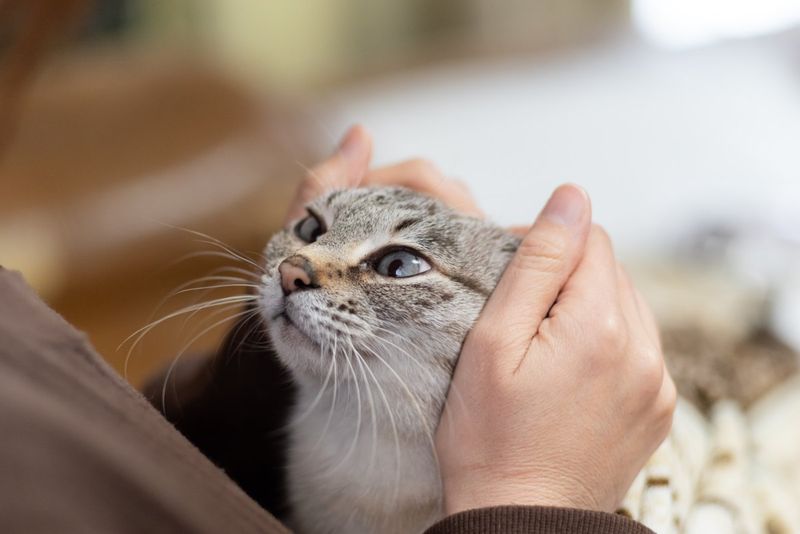
Welcome home celebrations aren’t just for dogs! Many cats develop special greeting rituals when their favorite humans return.
These happy homecoming meows usually sound different from other vocalizations – they’re often chirpy, musical little sounds. If your cat only meows excessively when you first arrive home, they’re simply expressing joy at your return.




